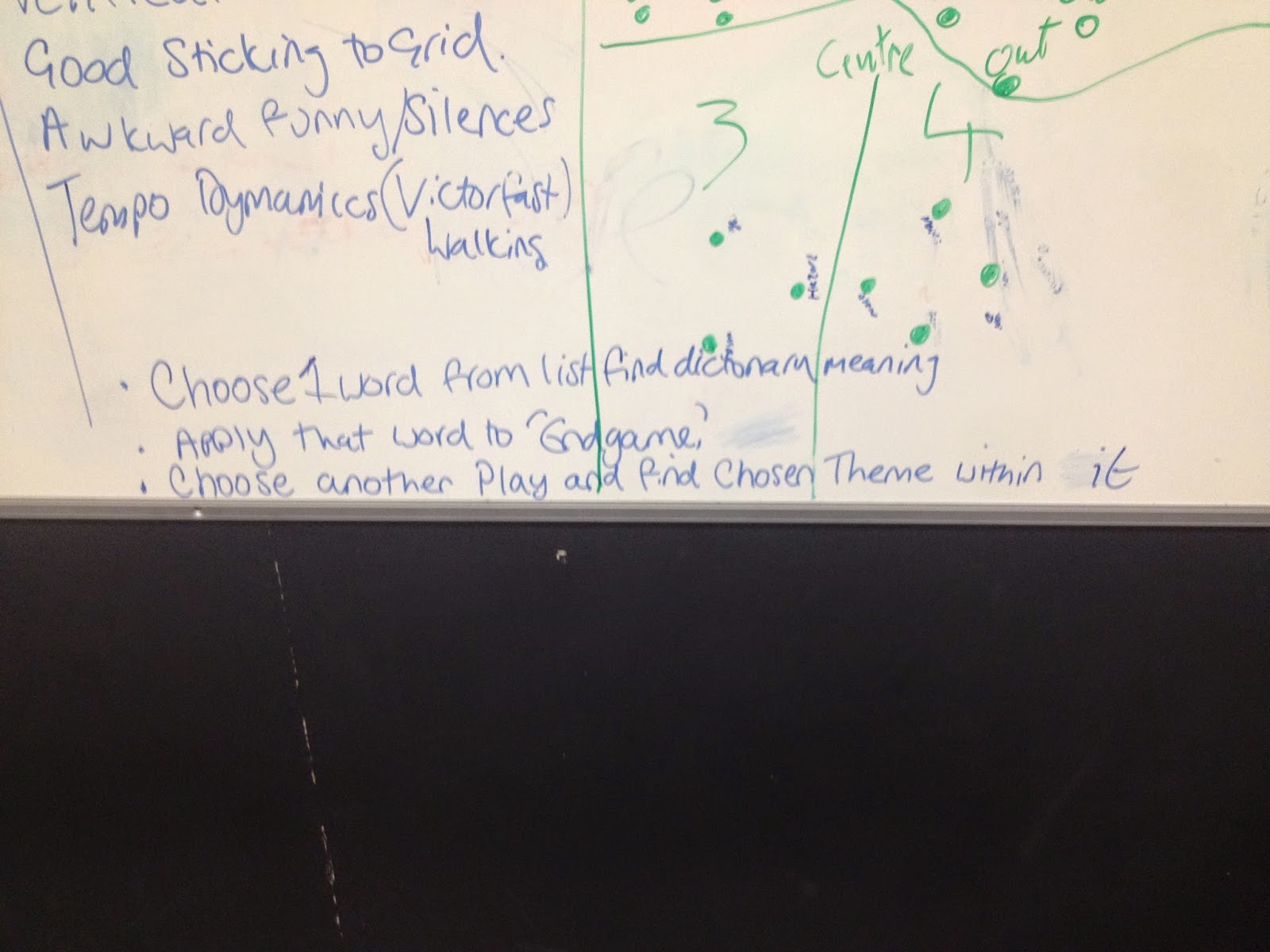Hey you lot!
above are the questions set by
I have chosen to look at the philosophical nature of Endgame.
Philosophical-
Relating or devoted to the study of the fundamental nature of knowledge, reality and existence.
Firstly there have been many interpretations into what 'Endgame' is about,
looking at it from a philosophical view, it can be broken down into different aspects.
- Repetitive natures of Beginnings and Endings.
- Loneliness
- Cyclical patterns
For example, In the part of the text where Clov finds a flea on himself, Hamm questions the existence of the flea and states "But humanity might start from there all over again! Catch him, for the love of god." this also shows a points of a cyclical nature.
having Hamm reacting in such a way can show bold characteristics of human nature and how repetitiveness is something we encounter everyday. this is also present in the section where Clov asks about Hamms story he has been telling, to which Hamm replies "what story?" inclining towards a start of the same story that has already been told.
Loneliness is a theme throughout 'Endgame' in the way that Clov and Hamm continuously threaten to leave one another. this can also be seen as dependency.
For example.
Clovs constant "I'll leave you!" and hamms expected reply of "No!!" shows the strange relationship between the two, as if they can not stand each other but also can not stand the thought of being alone/ without the other.
The other play I will be looking at is Gas Station Angel.
Written by Ed Thomas, it follows the story of two familys living in the welsh country side and how their stories intertwine.
i will also be looking at the philosophical nature of this play.
Its themes include.
- Identity
- Social stance of young people in the twentieth century
- Welsh mythology
all of these are addressed throughout the play.
firstly identity is something addressed by most characters but the character Bri mainly, half way through the play he goes missing for years, and later re-appears and has a monolouge explaining firstly why he left and then what he experienced whilst he was gone.
this also addresses the second theme as all these characters come from a rural area of wales
which the older characters have no problem with, but the younger generation struggle with this fact throughout.
lastly welsh mythology consist of mainly fairy storys, but this is translated into the play through the character 'Mati' who is constantly telling her son "you were a baby made by fairies"
this has later reputations as she mistakenly shoots a neighbor thinking it is a fairy, this also touches on dementia.


No comments:
Post a Comment